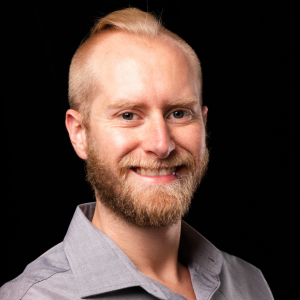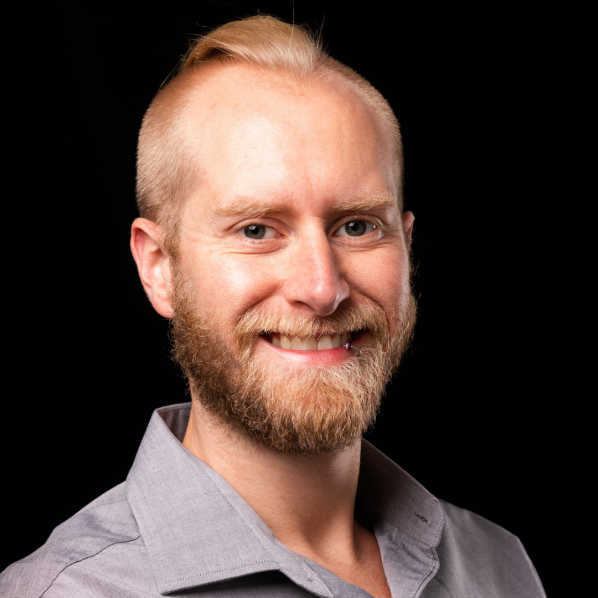BOONE, N.C. — Dr. Jefferson Bates, associate professor in the Appalachian State University Department of Chemistry and Fermentation Sciences, is a co-author of a new paper published in the Journal of Chemical Theory and Computation. The work, titled “Frozen-Core Analytical Gradients within the Adiabatic Connection Random-Phase Approximation from an Extended Lagrangian,” reports the implementation of an updated algorithm for calculating electron correlation energies within the random phase approximation (RPA) to density functional theory (DFT).
Dr. Bates worked with his collaborator, Dr. Henk Eshuis at Montclair State University, to derive, implement and test their proposed method. By “freezing” the core electrons, the new implementation is 30-50% faster than their original method published in 2013 and will widen the scope of applications where RPA can be applied.
Bates shared, “DFT is the most widely used computational method in quantum chemistry, physics and materials science for studying the electronic structure of atoms, molecules and materials. RPA-based methods have become very popular due to their accurate treatment of difficult systems containing transition metal and lanthanide metal atoms, as well as their ability to naturally describe weak molecular interactions such as the van der Waals interaction.”
Unfortunately, due to the mathematical formulation of the theory, RPA calculations tend to require more computer time than traditional DFT calculations as the number of atoms and electrons grows. In order to accelerate the RPA calculations, Bates and Eshuis relied on fundamental concepts from introductory chemistry to identify how the “core” and “valence” electrons can be treated separately in their calculations.
“Core electrons are those closest to the nuclei, and these electrons do not participate in typical chemical processes, so it makes sense to remove them from the electron correlation treatment,” explained Bates. This results in a smaller number of valence electrons that are used in the RPA calculation and reduces the amount of time required for computation without impacting the predicted molecular properties. For example, in a triferrous extended metal atom chain studied previously by Bates, the frozen-core approximation reduces the computational time by 47% without significantly impacting the predicted iron–iron and iron–nitrogen bond lengths.
By reducing the computational cost, larger systems can be tackled in a shorter time and it will now be possible to compute molecular vibrational frequencies at the RPA level in a reasonable time. The frozen-core RPA method has been implemented in the Turbomole software suite and will be released in the next version due out in Fall 2025. Turbomole is a cutting edge quantum chemistry software package developed and maintained by research groups around the world. Thousands of users around the globe will have access to the new method including academics and chemical industry professionals.
Bates earned his master's and doctoral degrees in physical chemistry with a concentration in chemical and material physics from the University of California Irvine before joining App State's Department of Chemistry and Fermentation Sciences in 2017. His research interests include theoretical chemistry and density functional development, as well as applied quantum calculations for inorganic chemistry. At App State, Bates teaches general and physical chemistry courses and has served as faculty mentor to the American Chemical Society sponsored Chemistry Club since 2018.
Related: Dr. Jefferson Bates publishes new paper in Inorganic Chemistry
###
About the A.R. Smith Department of Chemistry and Fermentation Sciences
The A.R. Smith Department of Chemistry and Fermentation Sciences offers a Bachelor of Arts in chemistry, a Bachelor of Science in chemistry with eight different concentrations and an interdisciplinary Bachelor of Science degree in fermentation sciences. The department’s programs prepare students to attend graduate and professional schools, as well as for employment in the pharmaceutical and fermentation industries and other business sectors. Learn more at dcfs.appstate.edu.
Written by Dr. Jefferson Bates
Edited by Lauren Gibbs
March 17, 2025
BOONE, N.C.

